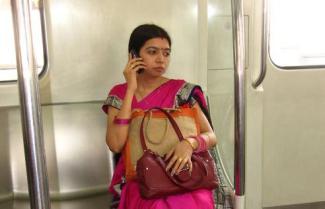Interview
“Pool and share knowledge”

Several emerging markets are currently affected by economic downturn. What must multilateral development banks do in this context?
For a long time, emerging markets were the engines of the global economy. When they start to falter, the effects are felt all over the world, including in Germany. The multilateral development banks can intervene to counteract this trend and, as they proved in the last financial crisis, they can protect emerging markets in particular from slumps. They can step in when private-sector banks are refusing to grant new loans.
Every crisis is also an opportunity. It cannot be that the economic boom in an emerging market like China means that people in big cities are exposed to serious air pollution every time they step outside their front doors. We must therefore emphasise sustainable development, especially in the emerging markets. The multilateral development banks have the know-how and the capital to support them.
In your eyes, what is the role of the ADB in particular? Its members include huge emerging markets like China, India and Indonesia, but also many small developing countries.
The need for investments and reforms is obviously huge, both in the big emerging markets and in the poorer Asian countries. Germany has therefore made sure that the Asian Development Bank will be able to increase its lending by about one third over the next ten years.
In the next four years the Bank will be doubling its investments in efforts to combat climate change. If we want to stop climate change then we need to work with Asia. This is just as important for poorer countries in Asia as it is for the emerging markets. The relevance of the Sustainable Development Goals is most evident here. And it is also clear that carbon emissions are especially high in Asia, though per-capita emissions are higher in Europe.
The world is a bit like a global construction site, and we need intelligent financing schemes in order to find solutions. The people living on the coasts of Bangladesh know this perfectly well. It is not their fault that everything they have is being submerged by the sea. All of us who have contributed to climate change have a responsibility here.
In cooperation with the Asian Development Bank, Germany has launched an initiative for Asia’s fast growing cities. We can ensure today that cities grow in a climate-friendly way tomorrow. That means good public transport, low-energy urban lighting, earthquake safe buildings and so on.
We see the annual meeting of the Asian Development Bank in Frankfurt in May as an opportunity to put even more emphasis on sustainability. When the Bank advises national governments on economic policies, sustainability must top the agenda. That is just as true for climate change as it is for global supply chains. Unless living wages are paid at the very beginning of the supply chain, we cannot ensure decent livelihoods for the people who make our clothes. A garment worker in Bangladesh must have enough to live on.
How will the ADB relate to the AIIB which was launched by the emerging markets because they did not want to leave matters to the established economic powers?
The need for infrastructure in developing countries and emerging markets is enormous. Railways, roads, schools and hospitals are required. Today, more than 1.6 billion Asians still live on less than two dollars per day. So it is actually in our interest that the Asian Infrastructure Investment Bank is starting operations. We have to ensure, however, that it observes environmental and social standards and, as a shareholder, Germany’s Federal Government will do that.
Fighting poverty, especially in the least-development countries, is an important component of the mission of multilateral development banks. What tasks should the regional development banks take on, and what is the brief of the globally active institutions – and is this cooperation going well?
Global institutions such as the World Bank are cooperating ever more closely with the regional development banks. They are increasingly joining forces to deal with major infrastructure investments or financial crises, drafting joint strategies and standards. In this context, we should not forget German agencies such as KfW Banking Group or GIZ either. The best example is the world’s biggest solar power station, which was recently inaugurated in Morocco. The World Bank, the African Development Bank, Germany and other donors have together initiated Africa’s Energiewende, the transition to clean energy.
It obviously makes no sense to have everyone doing everything, so we need an intelligent division of labour. The regional banks are closer to the source for regional problems.
On the other hand, many problems transcend national borders, affecting more than one country or continent. Climate change is a striking example. In these cases, we need to pool and share knowledge – and that is the global institutions’ strong point.
Hans-Joachim Fuchtel is the ADB governor for Germany and pParliamentary state secretary to the federal Minister for economic cooperation and development.
http://www.bmz.de







